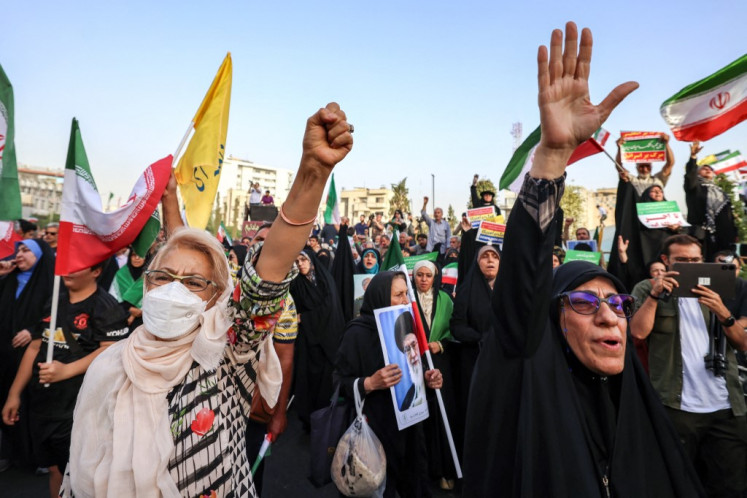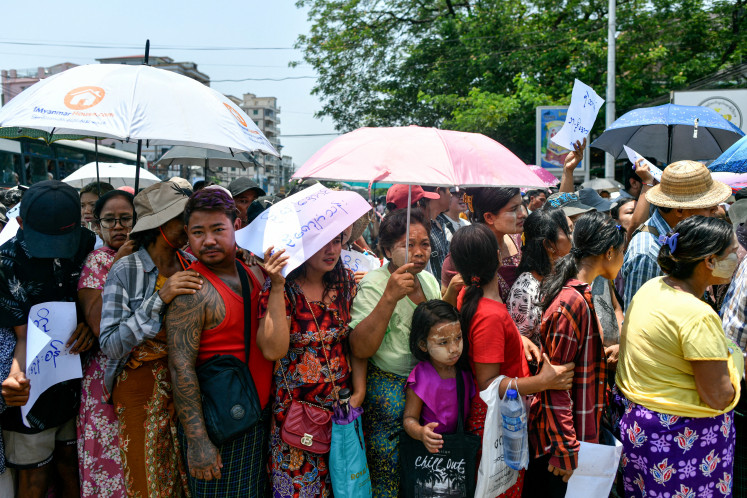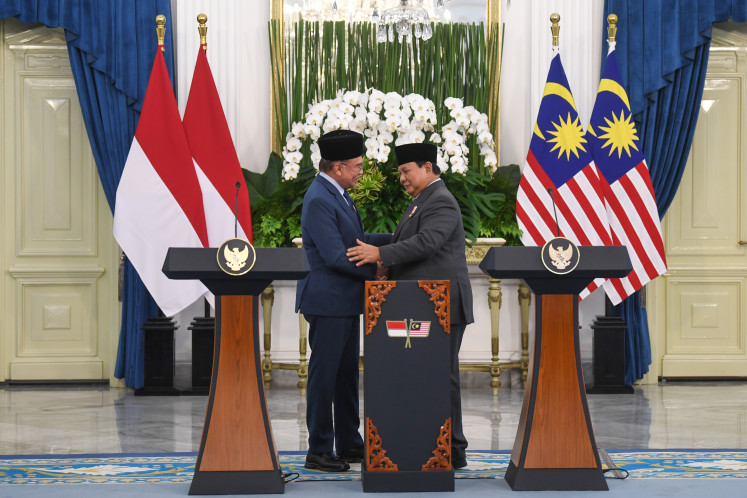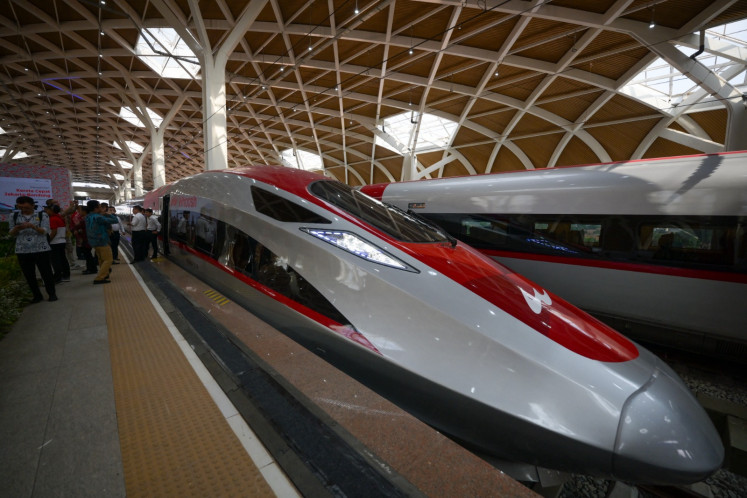Popular Reads
Top Results
Can't find what you're looking for?
View all search resultsPopular Reads
Top Results
Can't find what you're looking for?
View all search resultsIndonesia's medical tourism potential may be silver lining of pandemic
The COVID-19 pandemic has shined a light on Indonesia's potential for developing its medical tourism industry, particularly in terms of its improving medical services and facilities, but also in its need to develop a large and qualified health workforce.
Change text size
Gift Premium Articles
to Anyone
 Medical tourism is a developing industry as Indonesia improves its medical services and facilities, but the shortage of qualified health workers could pose a stumbling block. (Shutterstock/Gecko Studio)
Medical tourism is a developing industry as Indonesia improves its medical services and facilities, but the shortage of qualified health workers could pose a stumbling block. (Shutterstock/Gecko Studio)
I
ndonesia's healthcare reimbursement system is divided into the government-subsidized universal healthcare program through the Healthcare and Social Security Agency and private health insurance or self-paid schemes. Improving BPJS Kesehatan will require a comprehensive financial and political strategy.
With the current reimbursement rate, most hospitals are trying to adapt by adjusting their costs. Obviously, they have limited options when compared to the globally competitive, high-quality services and rapidly evolving medical technologies of the healthcare services and facilities of our neighboring countries.
Our regional competitors have acknowledged and have been exploiting the stigma of poor quality on Indonesia's medical services for some time now. Oliver Wyman in 2018 estimated that Indonesia lost about US$48 billion in annual revenue from outbound medical tourism, due to a lack of trust in the local health system and infrastructure. This figure is extremely ironic, given that the BPJS is still running up a major deficit at present.
Over 1,800 private hospitals that are mostly dependent on the BPJS scheme will not be able to withstand the pressure of cost savings, which will eventually put their medical service quality at risk. Most of these private hospitals lack good quality human resources and medical staff due to a supply shortage.
However, we are seeing many changes toward improvement that are allowing better positioning for local hospitals in providing competitive healthcare products. More domestic clients are staying in Indonesia to obtain their medical treatment, and this trend shows increasing confidence in local services. More and more clients these days are choosing Indonesian institutions for many specialty health services such as in vitro fertilization (IVF) and heart, minimal invasive and robotic surgery.
There is no doubt that the pandemic has changed both the domestic and regional landscape of healthcare services. The movement of people has been restricted and the priority activities are health and economic survival.
Many Indonesian hospitals are struggling to cope with a shortage of appropriate personal protective equipment (PPE), hospital beds and ventilators. They are therefore obliged to prioritize COVID-19 mitigation by generally limiting the provision of non-COVID facilities and services. This is also happening in neighbouring countries.
And given that arranging travel is extremely difficult, nonemergency and elective procedures are not prioritized and mostly deferred. Agencies that provide medical evacuation services are in the same position as other travel agencies, which have been left with no choice between stranded markets and closed healthcare destinations.
The Asia-Pacific IVF market was valued at $8.1 billion in 2018, and is projected to grow 11.6 percent annually in 2019-2028 according to a report by Allied Market Research. The Chinese market spent over $1 billion on outbound medical tourism since the recent relaxation of the one child policy.
This has created a new industry to accommodate the demand for medical travel. Medical agencies play a very important role in co-promoting borderless health care in exchange for significant commission fees.
It is unsurprising, however, that IVF businesses in Singapore, Malaysia and Thailand have been affected during the pandemic, as their major income derives from medical travellers, while medical agencies are struggling to sustain the economy.
Indonesia has a big healthcare market and as stated above, outbound medical tourism has resulted in a great loss of revenue. It has quality medical services that are quite competitive in the region.
However, all stakeholders must contribute equally to achieve the objective of empowering Indonesian medical services to serve our own community. The pricing policy is largely driven by high taxes and inefficient logistics. Good quality medical and nursing staff is essential in this industry, and we need to evaluate how they can be recognized internationally.
Government policy will play an important role in providing a vibrant environment that is conducive to domestic medical tourism. The agenda must therefore be clear that our priority is to promote Indonesia's medical services to retain our own citizens from traveling abroad for outbound medical tourism, and to attract inbound medical travelers from overseas in the longer term.
The pandemic has given us a once-in-a-lifetime opportunity to prove the quality of our medical services. All stakeholders have a common interest in achieving this objective, and despite our present focus on the healthcare burdens of COVID-19, collective and coordinated efforts are needed for Indonesia to win in the medical tourism industry.
***
The writer is an Australia-trained gynecologist and in vitro fertilization (IVF) specialist in Indonesia. He chairs the Bundamedik healthcare group, is secretary-general of the Indonesian Society of Obstetrics and Gynecology-Indonesian IVF Association (Perfitri-POGI) and founded the Indonesian Medical Tourism Board.









